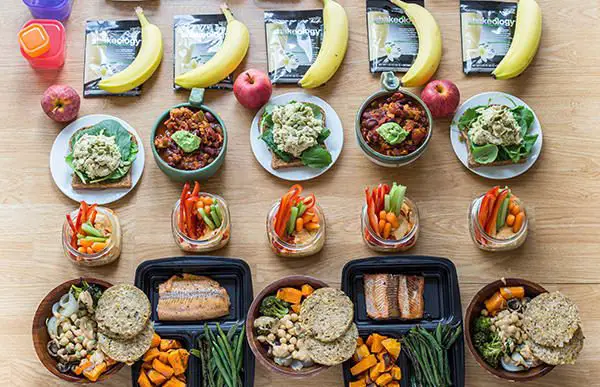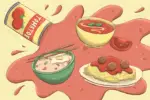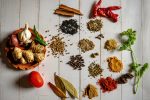You’re in your kitchen on a Sunday making a big batch of chicken, vegetables and rice from a “meal prep” recipe you found online. Since you don’t have time to make lunch during the week, you partake in this new trend every weekend.
You pack your fridge with a handful of containers for each day of the week, all of them containing the same, fully-cooked, “meal-prepped” lunch. But I have to tell you something: you’re lying to yourself. That’s not meal prep — it’s leftovers.
I imagine you’re wondering why the distinction matters. And I’ll be honest, it’s not the most pressing issue in the world right now. It’s still one I want to tell you about, though, because you can do better. You don’t have to eat the same, leftover meal every day.
“But sometimes I mix it up during the week,” you say. “Half of this recipe is Asian-inspired chicken and rice, while the other half is some sort of Tex-Mex situation.”
Okay, that’s a little better, I suppose. Still, even if you’re having a variety throughout the week, I’m still concerned about the fact that you’re eating leftovers and calling it meal prep. “What’s the difference?” you may wonder.
The distinction you have to understand is that meal prep should involve making components of a meal. Cooking a bunch of chicken or roasting some veggies on Sunday, for example, would count. The actual cooking part is important if you think about how some parts of a meal are better when they’re freshly made and not reheated after being in the fridge all week.
Maybe I’m a picky eater, but I’ve never been a big fan of leftover rice or pasta. I know there are ways to make it less dry when you reheat it, but it’s less taxing when you just make it fresh.
Some foods you shouldn’t even be letting sit that long in the fridge after being cooked. Cooked meat, for instance, only lasts three to four days refrigerated (not a full week, if you do the math). So you may actually be doing yourself a disservice by trying to make your meals last all week anyway.
Maybe you don’t leave food sitting that long, though. Maybe you just make a couple of meals for the next two or so days. While that is better for you since you don’t run the risk of eating food that’s gone bad, you can still do better by making parts of the meal instead of leftovers.
Some think, however, that leftovers are when you make a meal, eat some of it and then have some left. I argue that if it’s an entire meal being saved for later, it’s leftovers.
Believe it or not, people have strong opinions about it. There’s a subreddit called “Meal Prep Sunday” where fans of the lifestyle share recipes and their first meal prep experience. One user here posed the question, “At what point do leftovers become meal prep?”
A couple comments argued that the intention is what makes food fall under the leftovers or meal prep category. When you have leftovers, for instance, it is generally because you accidentally made too much food. When you meal prep, some commentators believe you purposefully make enough food to eat for later.
Another response to the genuinely curious Redditor included the thought that meal prep involves creating an entire meal and portioning it. The comment then reads, “So, imo, that guy who made taco meat and chicken didn’t really meal prep, unless he’s only eating that protein with no veggies or carbs.” But that’s what I personally believe is meal prep.
Maybe meal prep can be best compared to chopping up vegetables earlier in the day for a soup you’re going to make later, marinating meat overnight (because who doesn’t love flavorful food?) or having some pizza dough in the freezer for when you’re craving a homemade slice.
I suppose the main distinction is whether you consider meal prep to mean preparing a meal or preparing to make a meal. To me, it should mean the latter.
If you’re an avid meal prepper who does make full meals, you may hate this distinction. I’m not trying to ruin what makes your life easier, though. I simply want to encourage you to consider what parts of your meal could taste better if you made it that morning rather than a few days prior.
Sure, you have to eat to survive, but you can find ways to enjoy the experience, especially when you consider making parts of a meal far in advance a possible option.
I understand that weeks get hectic, and with a busy schedule, it’s hard to make the time to cook something every day. I’m not saying you have to do that. You may even read this and think, “Forget that” and go back to making some sort of pasta concoction to last you all week. It’s your choice, after all.
On the other hand, if you ever do have some spare time during the week, consider only making parts of your meal one Sunday and enjoy something a bit fresher later in the week. It could give you something to look forward to, rather than dreading eating the same old thing. But it’s all just food for thought, really.

















